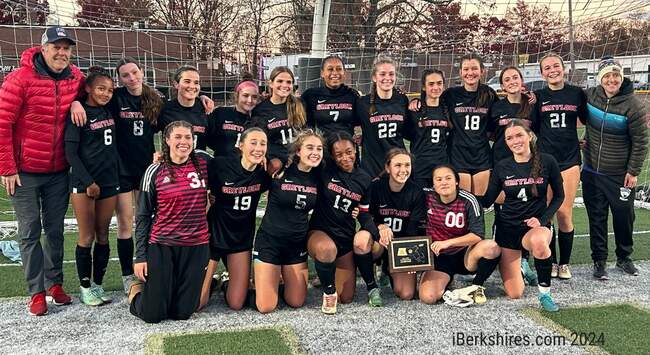Dalton Green Committee Shifts Focus to Achieve Climate Leader Status
DALTON, Mass.—The Green Committee is strategizing its next moves to assist the town in achieving climate leader status following changes in its requirements.
Attaining climate leader status opens doors for the town to secure more grant funding for green initiatives.
The town has already met two of the six requirements needed for this designation.
The town needs to commit to eliminating on-site fossil fuel use by 2050, create a decarbonization roadmap, adopt Zero-Emission Vehicles policy, and adopt the Specialized Stretch code by June 30 to receive the climate leader status by next year.
The Green Communities Division is a state organization that aids local municipalities in their endeavor to lower energy use, through clean energy projects in buildings, facilities, and schools, by providing grants, technical assistance.
During this process, the committee may face challenges surrounding funding, community opposition, and the need for public education surrounding the topic.
Initially, obtaining this designation required the creation of a climate action plan, but this was later removed due to opposition from state entities, Green Committee member Thomas Irwin said.
The Massachusetts Department of Revenue introduced new requirements, including the need for a decarbonization plan, causing the committee to reassess its priorities and potentially reallocate funds.
During a town meeting in May, the town voted to transfer $60,000 from free cash to fund developing a "Climate Change Roadmap."
Now that the Climate Change Roadmap is no longer required, the committee questioned whether they can reallocate some of the funds towards the decarbonization plan.
Once the town reaches climate leader status it will have access to up to $200,000 in grant funding to create a Climate Action Plan, Green Committee chair David Wasielewski said.
The Green Communities Division may also provide some funding or debt assistance to complete the decarbonization plan, Wasielewski said.
If the committee can use some of the $60,000 for the decarbonization plan, there will be more funding available to complete the Climate Action Plan, potentially reducing the financial burden on taxpayers, Irwin said.
Having access to more grant funding for the development of a Climate Action Plan will give the town a more "serious," "complete," and "deeper" Climate Action Plan, Irwin said.
A Climate Action Plan would outline the changes Dalton needed to make to meet greenhouse gas emission targets. A good Climate Action Plan can cost upwards of a quarter million, Irwin said.
A Climate Action Policy would fulfill the town's requirement to commit to eliminating on-site fossil fuel use by 2050. The town initially planned to align its climate action policy with the climate action plan. More information here.
Now that the Climate Action Plan is no longer required, a potential avenue they can undertake is incorporating wording in the decarbonization plan that would fulfill that requirement, Irwin said.
The committee may have to navigate community opposition regarding the Zero-Emission Vehicles policy and Specialized Stretch code requirements.
According to Town Manager Tom Hutcheson, the Zero-Emission Vehicles policy may face opposition from Police Chief Deanna Strout, so collaboration with her is crucial, Wasielewski said.
The Specialized Stretch code may also receive pushback from community members due to how restrictive it is and concerns that contractors will start to use spray foam to adhere to the requirements rather than the other options available to them, committee members said.
In addition to that, there may be some concerns from community members that the Specialized Stretch code will stop people from building in Dalton because of how strict it is.
The adoption of the Specialized Stretch code would need to be approved by town meeting vote. The Green Committee will collaborate with the Planning Board to gauge their interest in a proposal like this because it is a zoning change.
To ensure that the proposed change is well-received by the community, the committee must collaborate with local officials, boards, and residents to address their concerns and make them comfortable with the idea.
The committee will continue to collaborate with Hutcheson to provide the community with public education surrounding the requirements needed to become a climate leader.















